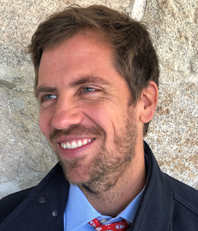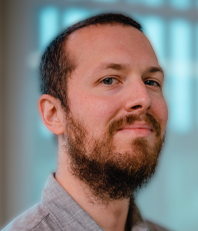-

Antón Barba-Kay
August 2024 – August 2026
Antón Barba-Kay is a Distinguished Fellow at the Center on Privacy and Technology at Georgetown Law School. He was formerly an Associate Professor of Philosophy at Catholic University and Robert Aird Chair of Humanities at Deep Springs College. In addition to his scholarly publications in nineteenth-century German philosophy, his essays about culture and technology have appeared in The New Republic, The Hedgehog Review and The Point, among other magazines. "A Web of Our Own Making" - his book about what the internet is and what a difference it makes - was published in 2023 by Cambridge University Press. He earned undergraduate degrees at St. John's College and the University of Cambridge, as well as a Ph.D. from the Committee on Social Thought at the University of Chicago.
Current Researchers
Senior Fellow
Research Affiliate
-

Derek Halm is a prior postdoctoral scholar at the Institute for Practical Ethics at UC San Diego. He is an applied environmental ethicist and philosopher of biology with broad interests in environmental conservation and animal welfare. He is working on several projects, including the conservation of hybrid species.Derek received his Ph.D. in philosophy from the University of Utah, his master’s degree in philosophy from Western Michigan University, and his bachelor’s degree in philosophy and English from the University of Michigan-Flint.
Visiting Graduate Student
-

Mariana Viale Pereira
January – April 2026
Mariana Viale Pereira is a Ph.D. candidate at the Oswaldo Cruz Foundation (FIOCRUZ/RJ) within the Postgraduate Program in Bioethics, Applied Ethics, and Public Health (PPGBIOS), where she focuses on the ethical and legal frameworks of human gene editing. She earned her Master of Laws from UFRGS and her Bachelor’s degree from PUCRS. Her expertise lies at the junction of Bioethics and innovative health technologies, supported by extensive experience in legal practice, notably as a Legal Clerk at the Court of Justice of Rio Grande do Sul (TJRS).